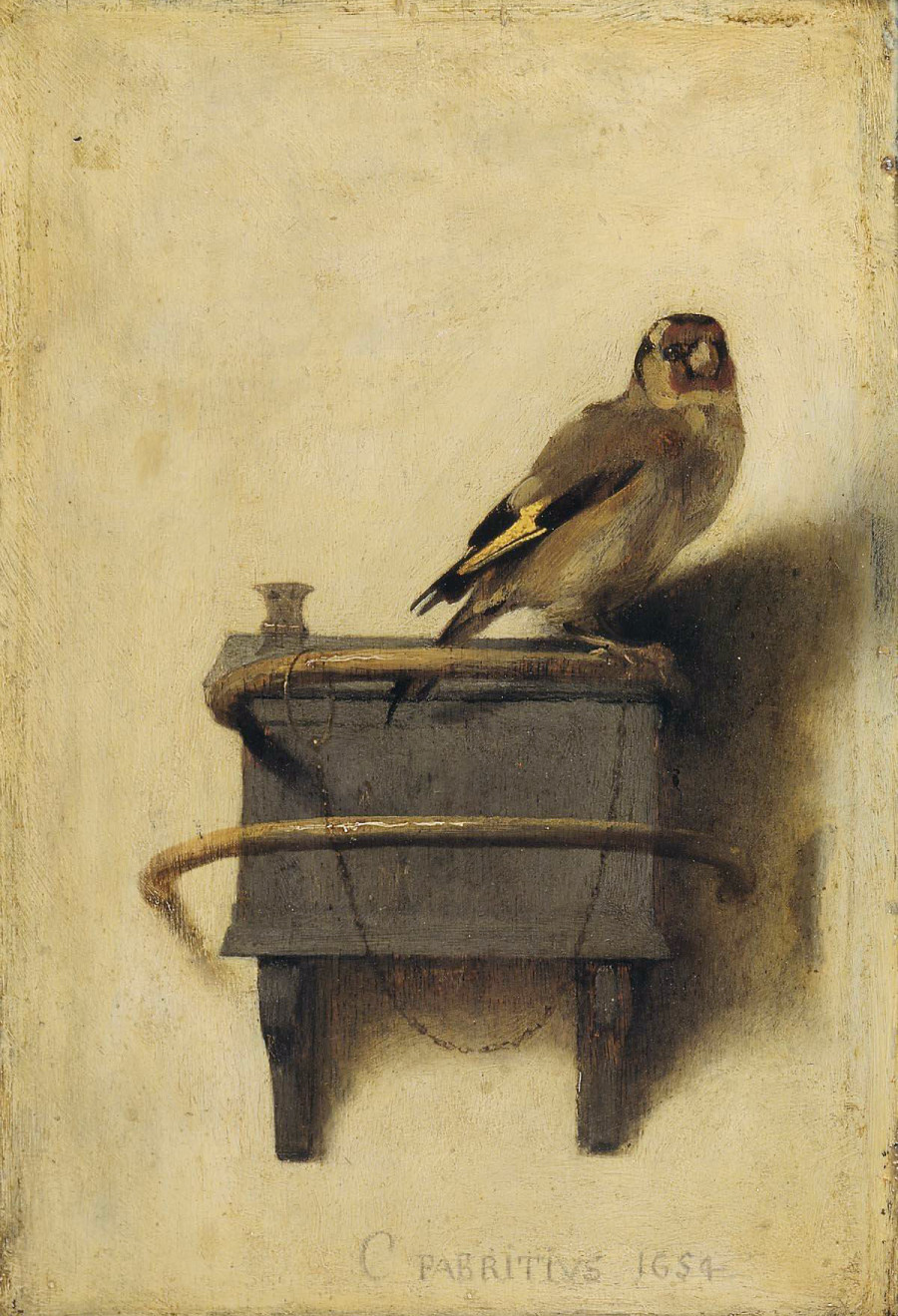Donna Tartt's The Goldfinch
 Yesterday, I was removed from the hazy world of The Goldfinch. Though the book is quite lengthy, it felt like it wasn’t long enough. Don't get me wrong, the ending was satisfying, I just wanted to remain in the rich work that Donna Tartt created.
Yesterday, I was removed from the hazy world of The Goldfinch. Though the book is quite lengthy, it felt like it wasn’t long enough. Don't get me wrong, the ending was satisfying, I just wanted to remain in the rich work that Donna Tartt created.
The main characters personify different attitudes toward life. Each of them exhibits the unique charm of their perspective, allowing it to grow so that it becomes a part of us, as we nod in understanding, if not consent, even as their defects of character become startling.
Theo is our narrator. He begins his story as a teenager, full of frustration because he is being punished for smoking at school, even though he wasn’t the one holding the cigarette. Little does he know that he is about to move into a world where this is his least injustice. On their way to see the principal, he and his mom duck into a museum, where a terrorist's bomb kills his mother.
Theo’s name is divine, but he is more of a Job. Terrible things happen to him. Though that Jobian self-pity is rare (even when Theo’s drowning in grief), he seems nihilistic. He has little appetite. Constantly trying to dull the pain, we learn about his search for death in his darkest times, his drug-induced blackness.
Nihilism may be the wrong word though. Because throughout Theo’s drive for numbness and his longing for the end of suffering, Arvo Part’s liturgy becomes his soundtrack and the liturgical calendar slips into the story, barely perceptible at first, marking the Advent longing and Christmas newness. Even in his despair, Theo still harbors a relenting hope for a loving reunion.
The undercurrent of Theo's story is that age-old theological question, “Why do bad things happen to good people?” Yet, with a sardonic Calvinistic twist, it becomes morphed into, “Why do good things happen to bad people?” Until the lines between good and bad, providence and depravity, become as messy as they are in real life.
I don’t mean to give anything away (and if you’re concerned, you can skip this paragraph), but Theo’s story is a conversion story with a richness that Century readers will relish. By the end, you will laugh as Tartt plays with the word “redemption.”
Boris (short for Borya, meaning fighter) explodes on the page with even more brilliance than the museum bombing. Although he leaves almost as much destruction as the terrorist, he is that friend whom you cannot help forgiving.
Though Boris’s ruinous habits are far worse than Theo’s, Boris barrels into them, not to numb the pain, but to intensify life. His frequent betrayals are accompanied by deep sorrow and a relentless search for beauty in everyone. He is the tempter and the savior, rolled up into one. Though Boris gets his parables mixed up, his gratitude abounds as he laps up each feast. His hunger reflects that prodigal who has wallowed in the pig mire and is determined to relish the sumptuous welcome and revel in God's forgiveness.
Then there is Hobie, James Hobarth, whose beauty comes out in the work of his hands. He is the wise one, whose hospitality is simple and endless. With cinnamon warmth and beef stew grace, Hobie entertains the widows and defends the orphans. He restores furniture, carefully nursing each flaw and scar that life has impressed on the wood. He takes discarded, abused things and makes them valuable. His goodness throughout brought me to tears—until I couldn’t bear him being disappointed in anything.
Hobie had a hunger too, one which he frequently relished and sated with his own cooking. But it wasn’t enough for Hobie to feed himself. He could not drink his wine alone; he had to share his table. Through his refurbished tables as well as his generosity of table, his bounty, care and love restored the inanimate as well as the animate.
Along with theodicy, predestination, and hospitality, there were many other themes that the theologically trained mind will pick up. There is the value of things, and the wrestling of whether they destroy the soul. Theo's mind seemed drawn to the little chain on the goldfinch painting, as his journey made the reader wonder about liberation. When the adolescent boys were the most free, they seemed confined. And I do not know if I'm making too much of it, but there might be something of a baptism, as Theo imagines his friend Andy's fate.
One of the most interesting themes was Tartt’s wrestling with presence. Throughout the book, the stunning, unique presence of the goldfinch was compared with artist’s copies, newspaper clippings, book photos, and digital renderings. Yet, there was something about the unfiltered presence, the light’s play, and the naked eye that made me constantly refer to George Steiner’s work.
Though most will compare the work to Dickens more than Job, James, and John, that undercurrent of theodicy surfaces into a wave at the end. And you'll find yourself awash with richness, hunger, and meaning.






